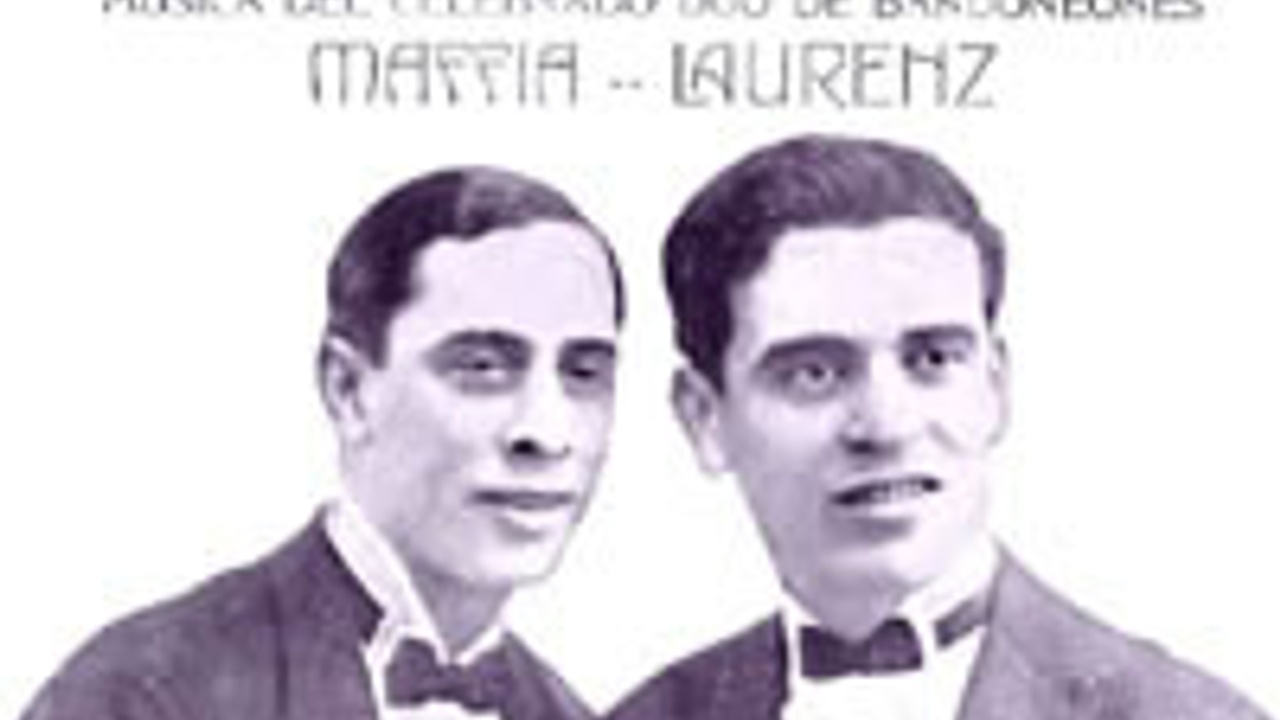Amurado
Sep 01, 2021
Amurado
1 September 2021 by Cosima Diaz Campos
The tango Amurado is composed in 1927 by Pedro Maffia & Pedro Laurenz.
The lyrics are written by José De Grandis.
Below in this blog you can listen to different versions of this piece.
Both Pedro Maffia and Pedro Laurenz recorded this composition with their orchestras.
Carlos Gardel recorded the piece as well, completely sung, in 1927.
Julio Sosa (1962) and Roberto Goyeneche (1990) recorded this piece completely sung.
Julio De Caro made an instrumental arrangement of this musical gem.
Osvaldo Pugliese (Decariano), arranged it for his orchestra later, also instrumental.
The version that is played very often for tango dancers is the version by Pedro Laurenz and his orchestra. Pedro Laurenz was orchestra leader / composer / arranger, and he played in his orchestra as a bandoneonist. He was wellknown for his incredible virtuosity. The two bandoneon variations played by Laurenz make this piece a real treasure for music lovers and dance lovers alike. The warm voice of Juan Carlos Casas gives this tango the nostalgic feeling. He only sings one strophe, and the rest of the piece is instrumental. We have to remember that even in the golden era, tango was filled with nostalgia, remembering and gloryfying the hard times that had passed, and the singer expresses this nostalgia very strongly, even though he only sings one strophe.
"Debe ser, porque me cruzan
tan fuleros berretines
que voy por los cafetines
a buscar felicidad."
Another version that is wellknown by tangodancers is the arrangement by Osvaldo Pugliese. In Pugliese's version the strophe that was sung in Laurenz's piece, is now played by the violin, just like in the older version of Julio De Caro. The violin also gives the very romantic and nostalgic feeling to the piece, a wonderful contrast with the virtuosity of the variations of the bandoneon. In the recordingof 1944 we can hear the musicians that played in his orchestra at that time; among other musicians we can hear violinist Oscar Herrero and bandoneonist Osvaldo Ruggiero.
Lunfardo
Amurado is a word from lunfardo. Muro is Spanish for wall. Amurado in Lunfardo means "hanging (from a wall)", with all its meanings, such as abandoned, imprisoned, indebted, ...
The lyrics is about a men who was abandoned by his love, and she left him 'amurado' (abandoned).
Some words are not so common, or are Lunfardo:
Pilchas: clothes
Bagayito: luggage
Tristona: very sad (triste: sad)
Reproche: reproach
Fulero: cosa / persona que es muy feo o desagradable.
Berretines: capricho, ilusión, deseo vehemente
Bulincito: very small appartment (bulín: small appartment of a single room)
Vagar: to wander (vagabundo)
Vengonzoso: shamful (verguenza: shame)
Curdo: drunk
Amurado
Campaneo a mi catrera y la encuentro desolada.
Sólo tengo de recuerdo el cuadrito que está ahí,
pilchas viejas, una flores y mi alma atormentada...
Eso es todo lo que queda desde que se fue de aquí.
Una tarde más tristona que la pena que me aqueja
arregló su bagayito y amurado me dejó.
No le dije una palabra, ni un reproche, ni una queja...
La miré que se alejaba y pensé:
¡Todo acabó!
¡Si me viera! ¡Estoy tan viejo!
¡Tengo blanca la cabeza!
¿Será acaso la tristeza
de mi negra soledad?
Debe ser, porque me cruzan
tan fuleros berretines
que voy por los cafetines
a buscar felicidad.
Bulincito que conoces mis amargas desventuras,
no te extrañe que hable solo. ¡Que es tan grande mi dolor!
Si me faltan sus caricias, sus consuelos, sus ternuras,
¿qué me quedará a mis años, si mi vida está en su amor?
¡Cuántas noches voy vagando angustiado, silencioso
recordando mi pasado, con mi amiga la ilusión!...
Voy en curda... No lo niego que será muy vergonzoso,
¡pero llevo más en curda a mi pobre corazón!
How many nights do I wander around, in agony, in silence
Recalling my past, with my friend, the illusion!
I am drunk... And the shame of it I can't deny,
but I carry more drunk my poor heart (my heart is more drunk than I)
Carlos Gardel 1927
Pedro Laurenz 1940
Julio De Caro 1927
Osvaldo Pugliese 1944
Orquesta Julio De Caro (1927)
Orquesta Osvaldo Pugliese (1944)
Orquesta Leopoldo Federico con Julio Sosa (1962)
Roberto Goyeneche con arreglos y dirección de Raúl Garello (1990)
Copyright by Cosima Diaz Campos | Tango Masterclass
1 September 2021


